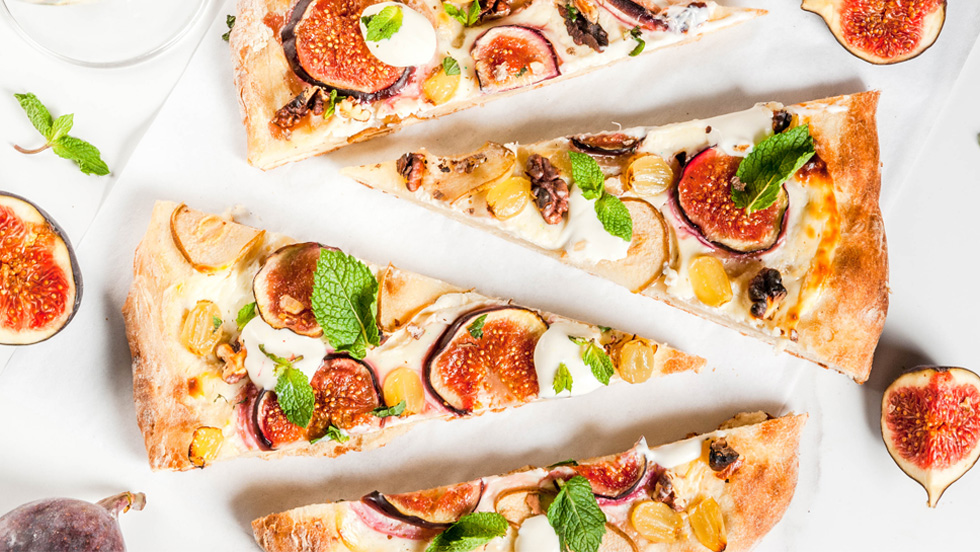
Why we cooked and ate as an antidote to fear and loneliness.
During the height of the pandemic, many of us spent our newfound free time cooking and eating. We revolutionized pantry staples, revived retro foods, poured hours into sourdough starters and hopped on the latest trends. According to Priya Wadhera, PhD, professor and chair of Adelphi’s Department of Languages, Literatures and Cultures, this heightened relationship to food was more than just a symptom of boredom.
The recipes we made, she writes in a recent article, “Ferguson’s ‘Food Fears’ in the Era of Covid-19″ (Contemporary French and Francophone Studies, July 2022)¹, “[led] us down the path of comfort and to a place of nostalgia, ultimately to a site of creativity and nourishment of a higher order.” Drawing on the work of the late French scholar and sociologist Priscilla Parkhurst Ferguson, PhD, Dr. Wadhera explores food’s ability to conjure “abundance, pleasure and memories” in response to “danger and death.”
Our pandemic culinary choices reflect the “nourishment for the soul that food can provide,” Dr. Wadhera maintains. Faced with ongoing lockdown and social distancing measures, people turned to recipes that allowed them to exert control over their lives while escaping into “carb-laden” nostalgia. She points to the focaccia garden— homemade focaccia topped with artful arrangements of herbs and vegetables—as a particularly salient metaphor. “A garden is outdoors, in the open air; it is safe, idyllic, Edenic. A focaccia garden is a place to go to escape the everyday hell of the pandemic.”
In the end, Dr. Wadhera believes, the pandemic stands to teach us an important lesson about “how food connects us, one food fear and one comfort food at a time … each is a way for us to cook together, apart.
Biography

Priya Wadhera, PhD
Priya Wadhera, PhD
Priya Wadhera, PhD, is professor and chair of the Department of Languages, Literatures and Cultures. Her first book, Original Copies in Georges Perec and Andy Warhol, was published in 2017, and her focus shifts from art to food in her next book project, a study of how Proust’s madeleine episode has been rewritten in literary works during the past century. Dr. Wadhera is the immediate past chair of the Executive Committee of the Languages, Literatures and Cultures 20th- and 21stCentury French Forum for the Modern Language Association.
¹Wadhera, P. (2022). Ferguson’s ‘Food Fears’ in the Era of COVID-19. Contemporary French and Francophone Studies, 26(3), 287–294. https://doi.org/10.1080/17409292.2022.2076407